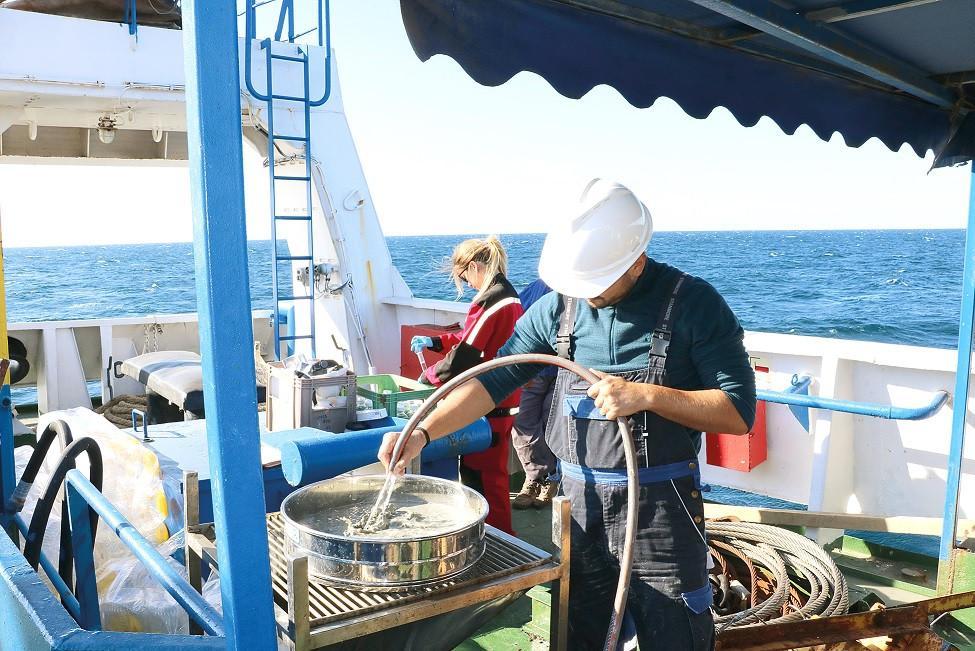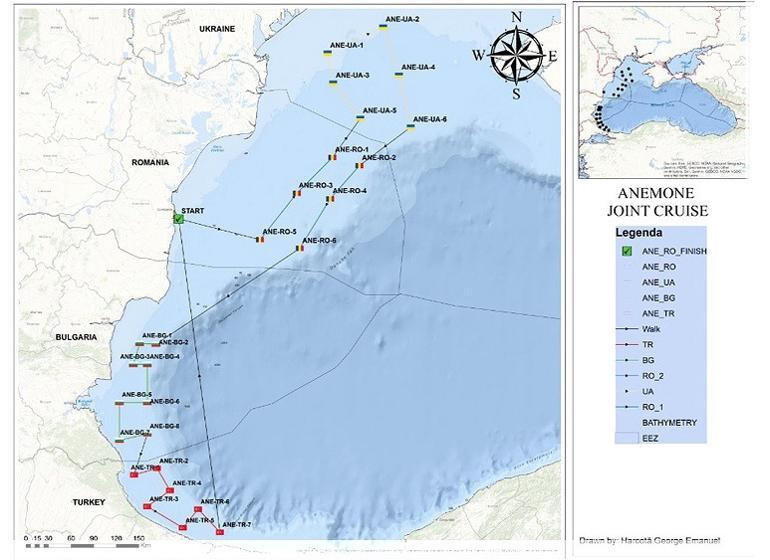Multinational project launched to assess pollution in Black Sea
ISTANBUL – Demirören News Agency

A team of 17 marine scientists from four countries, including Turkey, have joined forces in a new project aiming at evaluating the degree of pollution in the Black Sea. Scientists on board the research vessel “Mare Nigrum” carried out sampling of water, sediments and marine organisms to assess the health of the sea, which marks the majority of Turkey’s northern border.
The project, “Assessing the vulnerability of the Black Sea marine ecosystem to human pressures” (ANEMONE), was launched with the Black Sea Joint Scientific Cruise between Sept. 30 and Oct. 7, according to a press release by the Turkish Marine Research Foundation (TÜDAV) on Oct. 19.
“Organizing this joint cruise with specialists from countries around the Black Sea is a great opportunity because this expedition allowed collecting valuable data and promoting the importance of an integrated marine monitoring (system) at a regional level for a responsible ecosystem-based management in the Black Sea,” said Dr. Laura Boicenco, the chief scientist of the expedition.
“We collected nearly 65 samples from the seabed of the Romanian, Bulgarian and Turkish Black Sea shelves and extended measurements for dissolved oxygen, temperature, salinity, nutrients, pollutants and biological parameters from 21 stations,” added coordinator of the National Institute for Marine Research and Development (NIMRD) in Romania.

In the coming months, marine scientists will study these data, through laboratory work, including processing of samples, data analysis and assessment. The results will serve to map the bottom habitats and to assess the biodiversity and integrity of the seabed under the requirements of the Marine Strategy Framework Directive.
The results will be shared, collated and published as the report on the “Status of the Environment of the Western Black Sea.”
Collecting water and sediment samples of hazardous substances such as heavy metals and total petroleum hydrocarbons will help to set up the allowable level of contaminants for human seafood consumption and to assess the pollution level in Black Sea biota, according to the press release.
“Simultaneous observations of seabed macrolitter and microlitter from the water column were done during the cruise, following the Guidance on Monitoring of Marine Litter in European Seas,” said Arda Tonay, associate professor at Istanbul University’s Faculty of Aquatic Sciences and vice chair of the TÜDAV.
Marine mammals, birds and floating litter were included in the items under survey of the ANEMONE cruise.
The scientists traveled 20 transects with a length of 619 kilometers, totaling about 60 hours, and more than 300 sightings were recorded, mostly of the birds.
The project, supported by the European Union, is being carried out by the NIMRD in partnership with the TÜDAV, the Scientific and Technological Research Council of Turkey / Marmara Research Center (TÜBİTAK-MAM), the Institute of Oceanology / Bulgarian Academy of Sciences, the Ukrainian Scientific Center of Ecology of the Sea (UkrSCES) and the nongovernmental organization Mare Nostrum.
ANEMONE is funded through the Joint Operational Programme Black Sea Basin 2014-2020.
















